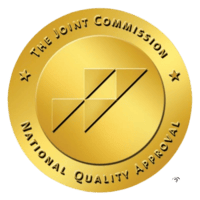When the aftermath of a night out leaves one grappling with the infamous hangover, understanding the role of vitamins in alleviating these symptoms can be quite enlightening. B vitamins are known for their ability to support energy production and enhance liver function, while vitamin C offers antioxidant capabilities that combat oxidative stress. Vitamin E, with its potential to reduce headaches and fatigue, is also significant. Additionally, minerals like magnesium and zinc contribute to mood regulation and immune support. But how exactly do these vitamins orchestrate their roles in hangover recovery, and what are their mechanisms of action?
Vitamin B Complex
While the exact mechanisms of hangovers are still not entirely understood, research suggests that Vitamin B Complex could play a significant role in alleviating some symptoms. Comprising eight essential vitamins, the B complex is vital for various metabolic processes, including energy production and the synthesis of neurotransmitters. These functions are particularly relevant in the context of a hangover, where fatigue and cognitive impairment are prevalent. B vitamin sources are diverse, ranging from animal products like meat, eggs, and dairy to plant-based foods such as leafy greens, legumes, and whole grains. Consuming a balanced diet rich in these sources can guarantee adequate intake of B vitamins, which may help mitigate hangover symptoms by supporting liver function and reducing inflammation. Learn more about how comprehensive treatment approaches can address substance use at our detox program.
Vitamin C
In the domain of nutrients that may aid in alleviating hangover symptoms, Vitamin C emerges as a notable contender due to its potent antioxidant properties. Known for its role in neutralizing free radicals, Vitamin C may help reduce oxidative stress induced by alcohol consumption. This vitamin plays a significant role in the synthesis of neurotransmitters and the metabolism of proteins, potentially mitigating the neurological disruptions often associated with hangovers. Vitamin C benefits extend beyond its antioxidant capacity. By supporting the immune system, it may help in counteracting the immunosuppressive effects of alcohol. Furthermore, Vitamin C is essential for the absorption of iron, an important consideration given that alcohol can interfere with nutrient absorption.
Vitamin E
A potential ally in mitigating hangover symptoms is Vitamin E, known for its robust antioxidant properties. This essential nutrient plays a critical role in protecting cells from oxidative stress, a condition exacerbated by alcohol consumption. During a hangover, the body undergoes a cascade of inflammatory responses, leading to headaches, fatigue, and other discomforts. Vitamin E benefits include neutralizing free radicals, thereby potentially alleviating some of these symptoms and supporting overall cellular health. For further understanding of treatment modalities, visit our treatment modalities page. Vitamin E’s effectiveness in addressing hangover symptoms is supported by its ability to enhance immune function and facilitate the repair of damaged tissues. Although direct evidence on Vitamin E specifically alleviating hangovers is limited, its general health benefits make it a valuable component of a balanced diet.
Magnesium and Zinc
Could magnesium and zinc be the missing pieces in alleviating hangover symptoms? Scientific evidence suggests that both minerals play roles in mitigating the adverse effects of alcohol consumption. Magnesium, an essential mineral, is involved in over 300 enzymatic reactions in the body, including those that influence mood and energy levels. One of the magnesium benefits is its ability to reduce fatigue and promote relaxation, which can be particularly helpful in alleviating the stress and anxiety often accompanying hangovers. Zinc, a trace mineral, is fundamental for immune function and cellular repair. Alcohol consumption can deplete the body’s zinc levels, leading to impaired immune response and prolonged recovery times.
Incorporating zinc sources such as nuts, seeds, and whole grains into one’s diet can help replenish this important mineral. Additionally, zinc supplementation has been shown to modulate inflammatory responses and may reduce the severity of hangover symptoms by curbing inflammation induced by excessive alcohol intake.

Final Thoughts
To summarize, the mitigation of hangover symptoms can be effectively supported through the intake of specific vitamins and minerals. B vitamins play a pivotal role in energy production and liver function, while vitamin C offers antioxidant protection and immune support. Vitamin E further contributes to reducing oxidative stress. Additionally, magnesium and zinc are essential for mood regulation and immune function. Collectively, these nutrients aid in alleviating common hangover symptoms, promoting a more rapid recovery post-alcohol consumption.
At BlueCrest Detox, we’re dedicated to elevating you from the struggles of substance use to the peaks of recovery and resilience. Our expert team offers personalized, evidence-based treatment services tailored to support your unique journey toward healing. Reach out to us for the compassionate care you deserve on your path to wellness. Follow us on Facebook for ongoing support, insights, and inspiration on your recovery journey. Additionally, be aware of regulatory concerns or warnings regarding hangover vitamins, such as the FDA’s scrutiny of products like “Happy Hour Vitamins,” which are highlighted in their official warning letter.
Frequently Asked Questions
Are There Any Natural Remedies for Hangovers Other Than Vitamins?
In addressing hangover symptoms, several natural remedies beyond vitamins may offer relief. Herbal teas, such as ginger or peppermint, are known to soothe nausea and aid digestion. Essential oils like lavender or rosemary, when used in aromatherapy, may alleviate headaches and promote relaxation. While these remedies are popular, it is essential to approach them with an evidence-based mindset, recognizing that individual responses may vary and scientific backing is still evolving.
How Long Does It Typically Take for Hangover Symptoms to Subside?
Hangover duration can vary greatly among individuals, influenced by several factors, including the amount of alcohol consumed and individual health conditions. Typically, hangover symptoms subside within 24 hours. However, symptom severity can range from mild to debilitating, impacting one’s ability to function normally. Factors such as hydration, nutrition, and sleep play vital roles in recovery. Scientific evidence supports that rest and adequate fluid intake can mitigate these symptoms, promoting faster recovery.
Can Hydration Alone Help Alleviate Hangover Symptoms?
Hydration alone can greatly alleviate hangover symptoms, as it aids in restoring the body’s electrolyte balance, essential for normal cellular function. Effective hydration strategies, such as consuming water and electrolyte-rich fluids like sports drinks, can help mitigate the dehydration caused by alcohol consumption. While hydration is vital, it is most beneficial when combined with other restorative measures, such as adequate rest and balanced nutrition, to thoroughly address hangover effects.
Do Certain Foods Help Reduce Hangover Effects?
Certain foods can indeed aid in mitigating hangover effects by promoting nutrient absorption and replenishing lost electrolytes. Consuming hangover foods such as eggs, which contain cysteine that helps break down acetaldehyde, can be beneficial. Bananas, rich in potassium, help restore electrolyte balance. Additionally, toast or crackers can stabilize blood sugar levels. A balanced approach focusing on nutrient-dense, easily digestible foods can support recovery by enhancing the body’s ability to assimilate essential nutrients.
Is Sleep an Effective Way to Recover From a Hangover?
The role of sleep quality in hangover recovery is significant, as restorative sleep aids in both physical and cognitive recuperation. Effective recovery techniques often emphasize adequate rest, which facilitates the body’s natural healing processes. Sleep allows the liver to metabolize alcohol, reducing its presence in the bloodstream, and aids in neurological repair. Prioritizing sleep, in conjunction with hydration and balanced nutrition, forms a thorough approach to alleviating hangover symptoms.




